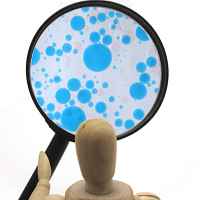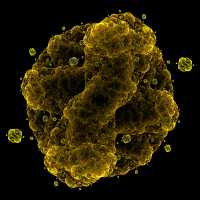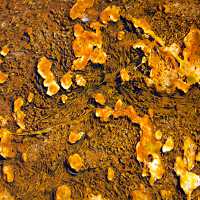Antimicrobials: Handle With Care (21st November 2020):
 Certain bacteria have become resistant to some of the most powerful antibiotics available today. So, antimicrobial resistance (AMR) has emerged as a critical public concern. Microbes are minute, single-celled organisms that are invisible to the naked eye. They include microorganisms such as virus, bacteria, fungi, and parasites.
Certain bacteria have become resistant to some of the most powerful antibiotics available today. So, antimicrobial resistance (AMR) has emerged as a critical public concern. Microbes are minute, single-celled organisms that are invisible to the naked eye. They include microorganisms such as virus, bacteria, fungi, and parasites.
AMR basically refers to the ability of microbes to stop an antimicrobial (e.g., antibiotics, antifungals, antivirals, antiparasitics) from working effectively. Not all microbes are harmful. There are certain bacteria such as Coli and Escherichia that are present in our intestine and aid in digestion. At the same time, a different strain of the same bacteria can cause health issues such as vomiting or diarrhoea.
Studies estimate that millions of people die worldwide every year from AMR. Like other times, the week of 18th to 24th November, 2020, is being observed by the World Health Organization to promote awareness on the issues of drug resistance among the general public, health workers, and policy makers. Misuse, overuse, or improper dosage of antimicrobials can contribute to antimicrobial resistance. In such cases, medicines become ineffective, making the chances of persistence of infections in the body and their spread higher.
 Antimicrobial drugs can be grouped according to the microorganisms they treat. We rely on these medicines for a variety of health conditions such as respiratory, urinary tract, or even sexually transmitted infections. Since the discovery of the antibiotic drug class, Penicillin by Sir Alexander Fleming, antimicrobials have served as life-saving medications provided that they possess the capacity to work against the particular organism causing infection.
Antimicrobial drugs can be grouped according to the microorganisms they treat. We rely on these medicines for a variety of health conditions such as respiratory, urinary tract, or even sexually transmitted infections. Since the discovery of the antibiotic drug class, Penicillin by Sir Alexander Fleming, antimicrobials have served as life-saving medications provided that they possess the capacity to work against the particular organism causing infection.
How Do Antibiotics Work?
White Blood Cells (WBCs) present in the immune system can attack harmful bacteria and kill them usually before they can multiply and cause symptoms. Even if symptoms do occur, our immune system can fight the infection off. But sometimes, our immune system is unable to handle the excessive increase in harmful bacteria. It is then that the role of antibiotics comes to the fore. Antibiotics either slow down the growth of those harmful bacteria from reproducing, or destroy them. They work by interfering with the development of the bacterial cell wall, and the cell contents.
When Are Antibiotics Prescribed?
It is to be noted that a doctor prescribes antibiotics for the treatment of a bacterial infection. Antibiotics are not effective against common cold, flu, and other viral illnesses. If people use antibiotics incorrectly, or overuse them, they might become less effective against the particular type of bacterium that has already been able to build on its defences.
To lower the risks of bacterial resistance and antibiotic overuse:
- Consult a medical practitioner for proper diagnosis of a bacterial or viral disease. Always discuss the course, dosage, risks, and benefits of the prescribed medicines with them.
- Please stop taking antibiotics all by yourselves, so that the concerned health experts are able to assess the condition and prescribe the optimal dosage that will work on the infection-causing microbe.
- Even if the symptoms have improved, do not leave a course of medicine mid-way. That can lead to the onset of infection again.
- If they are not too much of a trouble, then let milder illnesses, particularly those minor ones caused by viruses run their natural course. This may help in boosting your immune system too.
Trying Out Alternative Remedies
 Over 20 percent of the patients treated with prescription antibiotics experience adverse side effects ranging from gastrointestinal disturbances to mild allergic reactions. Hence, along with certain lifestyle modifications, people have started turning to natural remedies for garnering health benefits and strengthening their immunity. Many common ailments such as sinus problems, superficial wounds, and sore throats do not necessitate drugs. They can simply be treated by harnessing your body’s innate healing power.
Over 20 percent of the patients treated with prescription antibiotics experience adverse side effects ranging from gastrointestinal disturbances to mild allergic reactions. Hence, along with certain lifestyle modifications, people have started turning to natural remedies for garnering health benefits and strengthening their immunity. Many common ailments such as sinus problems, superficial wounds, and sore throats do not necessitate drugs. They can simply be treated by harnessing your body’s innate healing power.
So, let’s all be kind to our bodies, and follow certain lifestyle recommendations:
- Getting quality sleep for at least eight hours;
- Eating healthy whole foods, and avoiding excess sugar intake;
- Incorporating herbs and spices like boswellia, turmeric, and cumin into your diet;
- Increasing the intake of energizing nutrients like thyme, ginger, garlic, elderberry, sage, and echinacea;
- Doing exercises, practicing relaxation techniques, meditation and yoga;
Maintaining healthy relationships, and following your passions.
